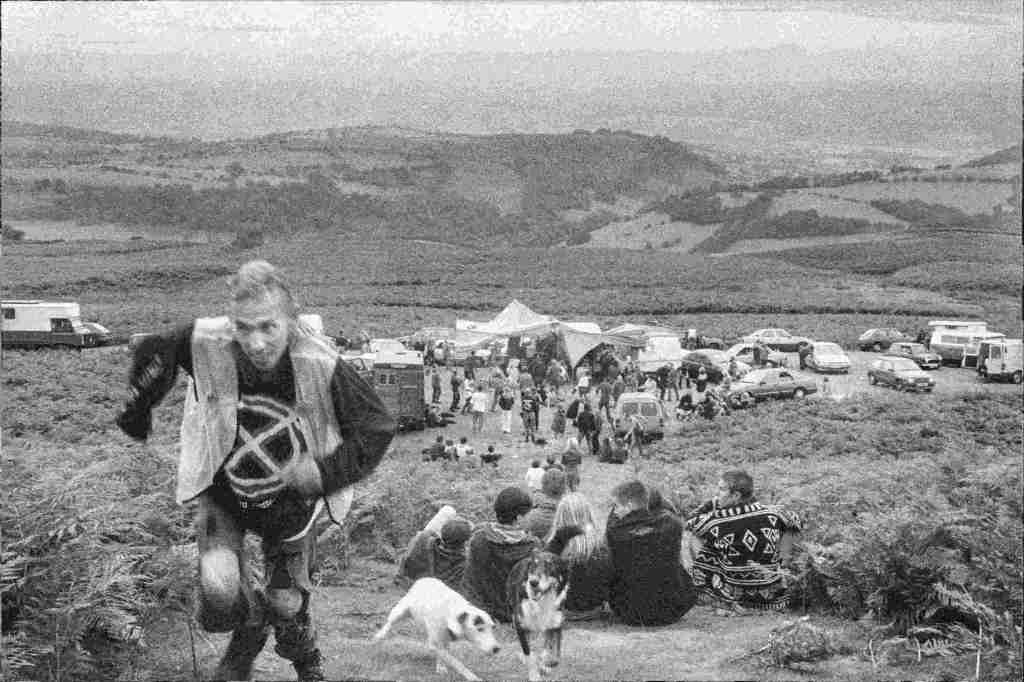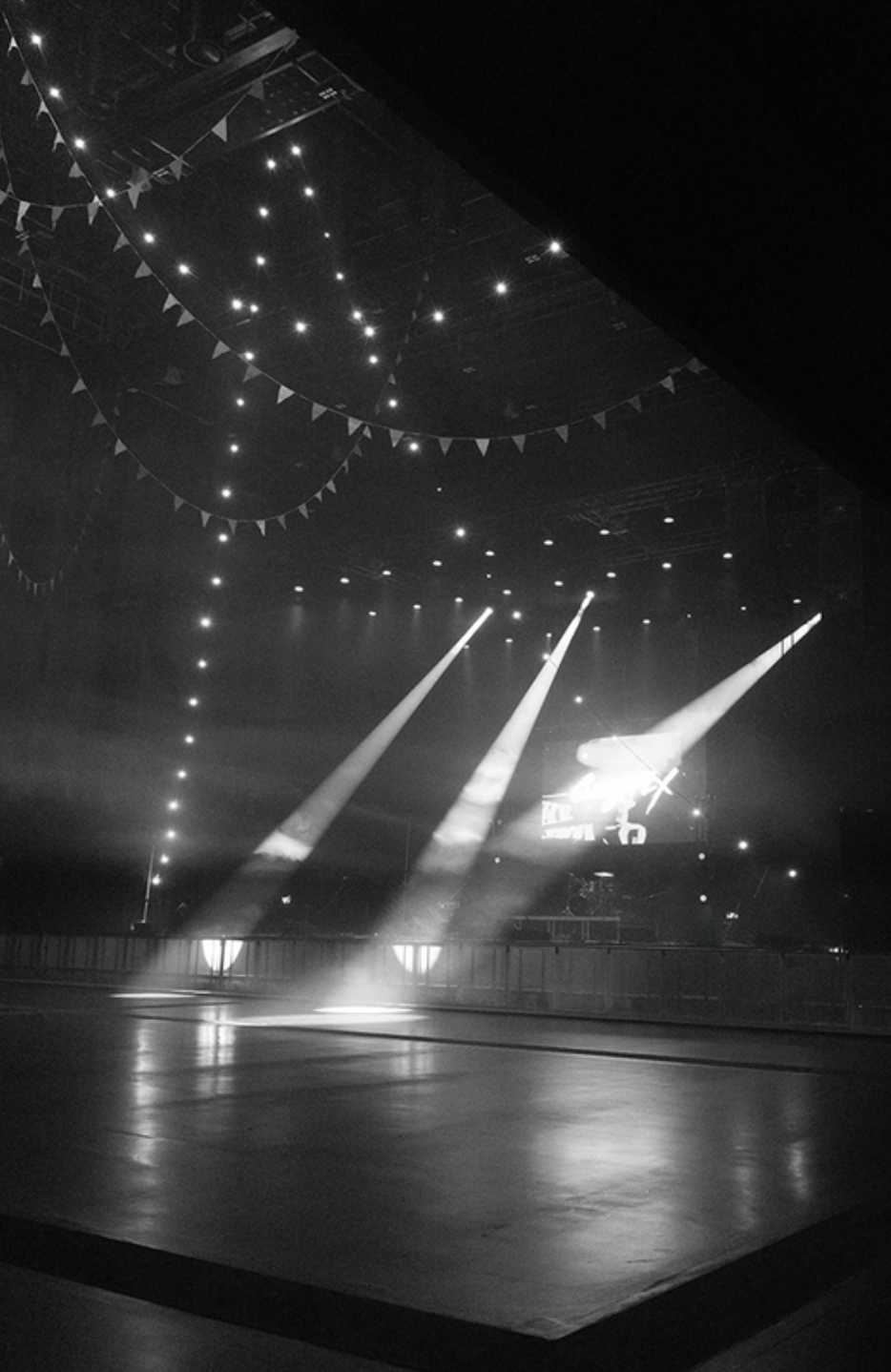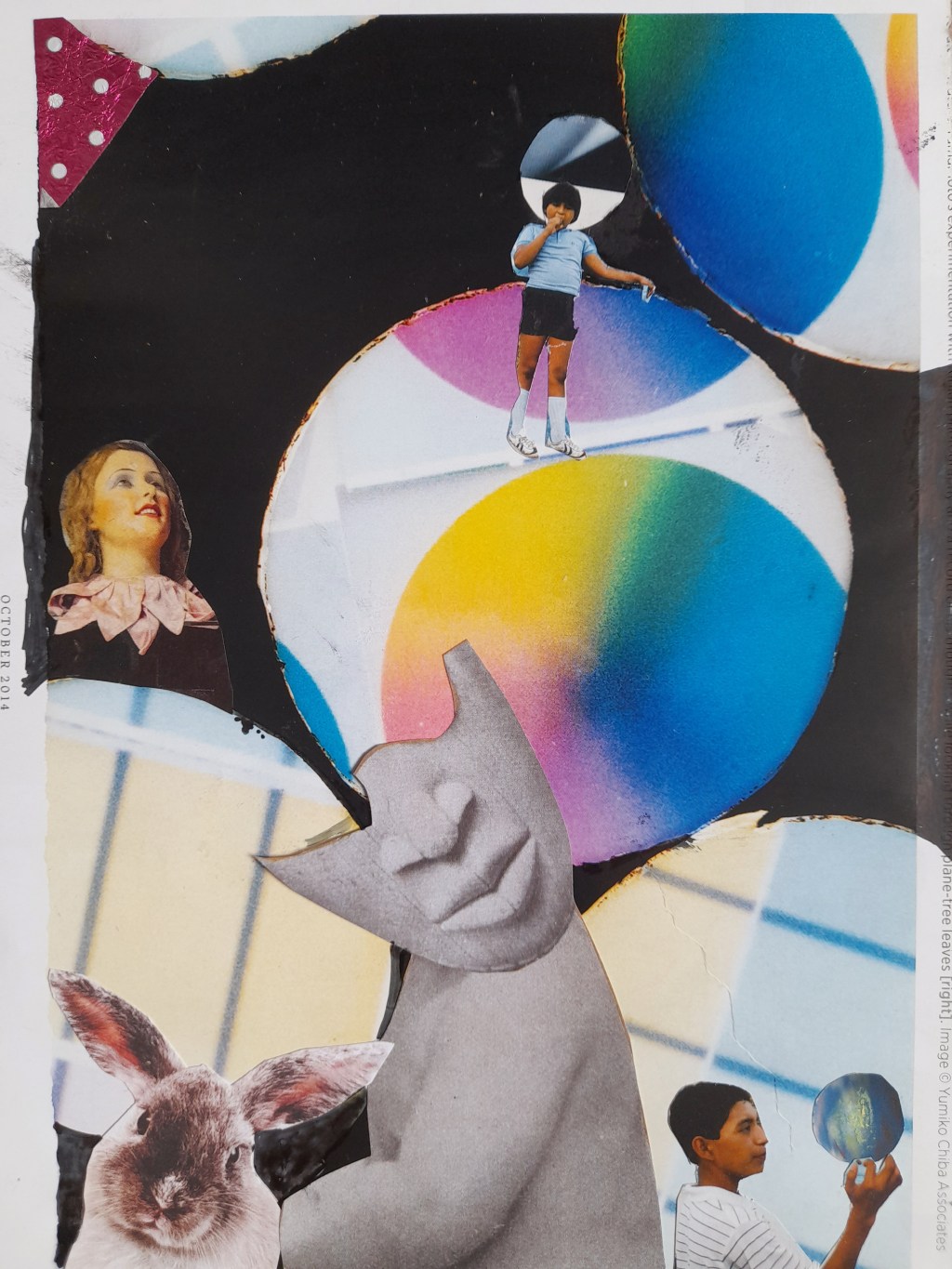On November 3rd 1994 the UK Parliament approved the Criminal Justice and Public Order Act to curb the increasingly popular Free Party movement, the counterculture, counter-CLUB-culture, mostly outdoor, squat-style, always “unsanctioned” rave scene, which chose to eschew both the brick and mortar, gate-kept perimeter of the club, and the compromise of the legal and social rules and restrictions enforced by the owner of that property.
Starting in the late 80s, the UK’s Free Party scene guaranteed two things, free (donation-based) attendance and no authority (and generally in protest of), this meant raves could take place all over the UK as long as the property would remain undisturbed for the duration of the event (sometimes 24 hours, or the case of Teknivals, a few days even).
On par with the global D.I.Y. ethos, the Free Party movement would find value in the newly abandoned rural fringes of the modern world, havens for squat parties and large gatherings to hear endless DJ sets of techno, jungle techno, breakcore, gaba, psytrance, hard-trance, dream house, piano house, drum & bass, and more, taking back control of their music and its presentation.
In rural south-western UK, the Devon Free Party scene was one of the very first. Dismantled by 1993, the scene was massively active, drawing relatively large crowds to the old-world farms and the WWII-era Smeatharpe Airfield, all of which were reduced-use or abandoned, ripe with open spaces and dilapidated structures ideal for D.I.Y. acolytes and Free Party events alike.
Nestled within the Devonshire Free Party microcosm was Polygone. Usual suspects in the scene, Polygone can be considered one of the de facto house bands of the area, never leaving their corner of the farming community (they played two of the local farms almost exclusively, and multiple times a day and week) while drawing an upwards of over 400 plus people to the area at the height of Devon’s notoriety.
Even though Polygone’s gig schedule was extremely dense, the group only ever recorded 18 minutes of material—a weekend in a mutual friend’s shed. That album, TACTICS FACULTY, was recorded over 34 years ago and promptly lost to the clutter of time.
Soon after, the band members spread to the wind due to the fall of the Free Party scene in Devonshire (the events were now too big to be ignored by the local farmers who up until 1993 were happy to coexist) and the collapse of the delicate D.I.Y. ecosystem propped up by the members of Polygone.

It was not until 2021, when Difficult Art and Music (DAAM) founder Daniel Hignell-Tully found an intriguing lone CD labeled “Polygone” amongst a stack of Dreamscape bootlegs at an Exeter rummage sale, that the band’s story would resume.
Thanks to Polygone guitarist, sampler, and synthesist, Mark “Danko” Withers working alongside Hignell-Tully, DAAM was able to revisit this original 18-minute recording. And, with modern processing tech, the touch of modern electronic artists like Mücha, Audio Obscura,
Phexioenesystems, and Distant Animals, remaining band members including Susie Brooks, and the subtleties of modernity, those original stems are reimagined, reinterpretted, and reflected on the official release of TACTICS FACULTY—a double Tape/CD set, which includes an art print and magazine detailing the history of the band, on Difficult Art and Music.
As DAAM’s second release of 2024, TACTICS FACULTY, finds the best parts of Devonshire’s eclectic Free Party roster and brings their unique brand of heady, come-down electronic chill out vibes to the at-home listening experience.
The title track, Polygone’s 18 minute opus “Tactics Faculty” is a fantastic vision of dream-house, chill out electronic music. New age tinged synthesizer movements underpin throbbing gristle-esque vocal/ rhythm/ found sound/ sampled hits turned logographic through dizzying repetition.
The track winds through itself in a wonderful daze and is guided by a simple genius in a way only electronic ambient music can muster, the gossamer haze of a master like Eno’s influence shining in the track’s careful pace and moments of ecstatic density.
Totally their own, Polygone bends the snappy transient-laden hits of world music instruments
to cut through their lush ambient composition. Where mainstream artists such as The Orb, The KLF, Autechre, or Orbital, may have used dance-centric sensibilities to help push these sounds and chill out music towards a club audience, Polygone’s gradual, sound-first approach finds the listener in a much more isolated space.
Leaning on more avant garde and ambient threads, the lost-and-finally-found counter-club legacy of the now defunct Polygone is both intimate and massive simultaneously, it is not hard to imagine losing yourself to their sound in a group of hundreds, microdosing moments of chill out dance rhythms in one large swell of ambient electronics and noise.

The rest of the album follows Polygone’s lead and takes the world created in “Tactics Faculty” and tweaks it in so many interesting directions.
CRT’s “Tactical Organic Dub” is a poly-rhythmic experimental dub track which twists on its head a bit, featuring multiple repeating phrases which change in their own way—offering new moments of familiar melodies and harmonics while constantly introducing new pulses of noise and interesting synthesizer voice sound design.
Similarly understated is Mücha’s “Tactical Interpolation” a not-quite-lowercase ambient track with quiet eddies of dub mixed in the large sonic space of the track.
In a different minimal direction Phexioenesystems’ “Cactus City Flat” is a granular wormhole featuring a menagerie of scrubby-sample-based bursts, a cathedral of sound pushing through pinholes in the ether like early morning sun reclaiming the landscape.
In a palette of many triggers, the electronics obsessed “ _-_-_–__ _-__-___-_.wav” by David Currington is a more human time drifting noise track, and like Audio Obscura’s “Travels Through a Technocratic Landscape”, places great weight on moments of legibility and musical sensibility to track wonderfully layered veils of noise and signal processing sleight of hand to create interestingly dense spatial moments (Currington’s track features a mad swinging clock like transient and Audio Obscura’s piece is constantly losing track of a bright, spritely sequence, placed outside, it seems, the listener’s immediate location).
Delicacy is certainly not a constraint on tracks like Artifiseer’s “Dread Faculty (Anxietywave Edit)” or Oddgloss’s crushing “Penelope Waiting Running” which stand out as the loudest tracks on the release and honestly, you will turn them up with each listen. Highlighting the wonderful harmonic world of the noise spectrum, these are more than hard hitting dance tracks reminiscent of industrial, but also dark electronic, ambient experiences which find their own moments of scarcity.
Where other tracks on the album may turn to silence, these find instances of intimacy by overloading our viewing window with the beautiful, swallowing prowess of heavy, bass filled, harmonically tilted, noise.
The album is crowned with some extremely specific examples of quality chill out tracks just fresh with experience.
Driving, upbeat additions, Bartholomew’s “Basic Training” and The Both And’s “Mesothelae”, tote small packages of reverb drenched acid while Ruaridh TVO’s “Straddling An Uneasy Divide” dangles the instrument diversity of Polygone’s original track over an abyss where far off you can hear a drum and bass riff working away. Jonathan Higgins’s remix of “Tactics Faculty” finds similar purchase in dynamically textured composition in his stuttering, bass-worship ambient track.
The new age shimmer of the original Polygone recording did not go overlooked in this release—Finlay Wright’s “Finlay’s ‘after the edge of chaos’ remix” and Stereo Minus One’s serpentine, angelic “Anthropocene” take the album’s ambient ceiling up another 20,000 feet, bringing in cosmic, meditative, drone and light-music-esque techniques in-line with the early days of dream house and chill out music.
DAAM’s release of Polygone’s TACTICS FACULTY is a singular piece of music history from a rural, isolated, impressive electronic scene. From electronic ambient to noise pricked drum and bass, this double tape/CD set highlights the ingenious constellation of artists working around the edges of the early 90s acid electronic and rave culture of the Free Party Scene in the UK.
Curtis Emery





